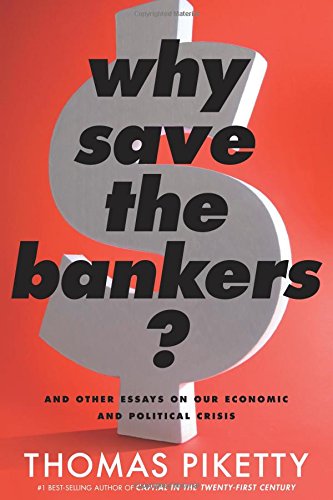About this item
Reflections on politics, the economy, and the modern world by the #1 New York Times-bestselling author of Capital in the Twenty-First Century. Thomas Pikettys work has proved that unfettered markets lead to increasing inequality, and that without meaningful regulation, capitalist economies will concentrate wealth in an ever smaller number of hands, threatening democracy. For years, his newspaper columns have pierced the surface of current events to reveal the economic forces underneath. Why Save the Bankers? collects these columns from the period between the September 2008 collapse of Lehman Brothers and the November 2015 terrorist attacks in Paris. In crystalline prose, Piketty examines a wide range of topics, and along the way he decodes the European Unions economic troubles, weighs in on oligarchy in the United States, wonders whether debts actually need to be paid back, and discovers surprising lessons about inequality by examining the career of Steve Jobs. Coursing with insight and flashes of wit, these brief essays offer a view of recent history through the eyes of one of the most influential economic thinkers of our time. "Easy to follow for readers without much knowledge of economics, especially when [Piketty] picks apart topics that defy classical economic logic; in this he resembles Paul Krugman, who similarly writes clearly on complex topics . . . Helps make sense of recent financial history." - Kirkus Reviews "Anyone with an interest in politics, monetary policy, or international diplomacy will get a kick out of Pikettys clear discussion." - Shelf Awareness "If you have been influenced by Pikettys landmark work on inequality, make sure to read this next." - Naomi Klein, author of The Shock Doctrine and This Changes Everything


